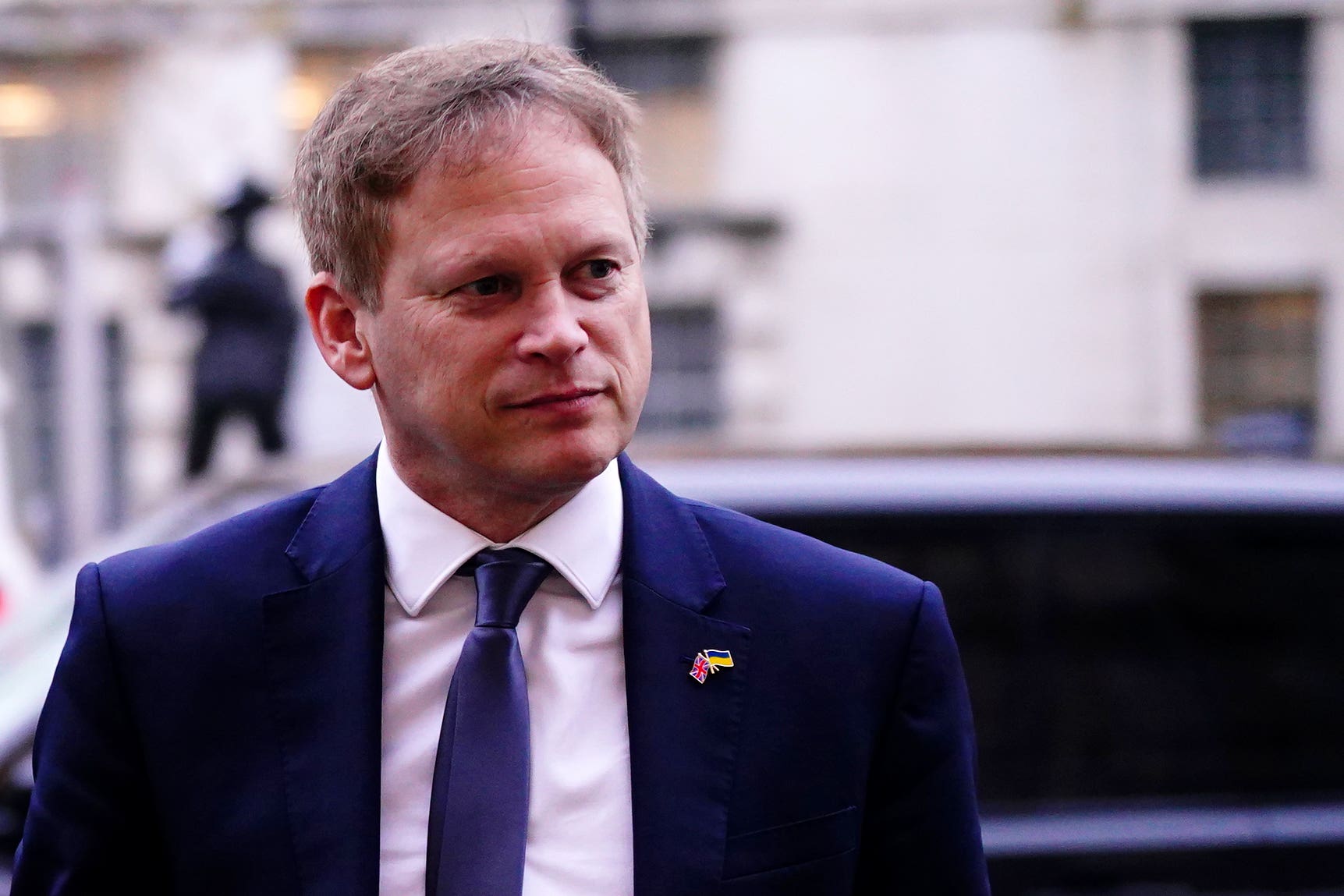
The government is pressing ahead with plans to introduce new legislation for minimum safety levels during industrial action.
The government has proposed the anti-strike measures which could let employers sue trade unions and sack workers if “minimum safety levels” are not upheld during industrial action in six key sectors.
Minimum service levels during any strikes in the NHS, rail, education, fire, border security and nuclear energy will be enforced through legislation to be introduced within weeks, business secretary Grant Shapps announced.
The safety levels will be set by the government for three of the most crucial areas – fire, ambulance and rail services – after ministers consult on “adequate level of coverage” for these sectors.
In the other areas, voluntary agreements will be pursued with the unions, but the government will be the ultimate arbiter on minimum service. It means employers could sack workers if legal safety levels are not obeyed.
Union leaders have vowed to take legal action to fight the planned legislation, while Sir Keir Starmer has pledged to repeal anti-strike laws if Labour wins the next general election.
But Mr Shapps said the bill could be introduced “quickly” into parliament, saying he saw no reason why it would need to be obstructed by the unions or opposition parties.
The cabinet minister vowed to protect “the freedom to strike” but said the bill would “restore the balance between those seeking to strike and protecting the public from disproportionate disruption”.
Mr Shapps rejected the warning by unions that the move could violate the human rights of trade union members. He argued that “civilised European nations” – including France, Germany, Italy and Spain – all have some form of minimum safety levels.
“We’re not proposing to go the full hog,” Mr Shapps told broadcasters. “Other countries, parts of America, Canada, Australia, they have legislation which bans those blue lights entirely from going on strike.”
The business secretary added: “We’re not proposing that – I think it’s very reasonable what we’re suggesting … I think the time has come and it brings us into line with other European nations.”
Sir Keir said the legislative plan was “likely to make a bad situation worse”, accusing Rishi Sunak of being “all over the show” on moves to end the wave of strikes. He added: “I do not think that legislation is the way that you bring an end to industrial disputes. Will we repeal it? Yes we will.”
The TUC is preparing to lead legal action against the legislation. The union warned that restricting the right to strike could violate the Human Rights Act 1998 and said the government could expect a fight “in parliament and in the courts”.
TUC leader Paul Nowak said the plan was “wrong, unworkable, and almost certainly illegal”, adding: “This is an attack on the right to strike. It’s an attack on working people. And it’s an attack on one of our longstanding British liberties.”

Mick Whelan, general secretary of the Aslef rail union, which has vowed fresh strikes beyond Thursday’s 24-hour walk-out, said his union would look at joining any legal action against government legislation.
The rail union boss warned the move could backfire by sparking workers to stage longer periods of industrial action. Mr Whelan said unions would take “more days action to equate to the same level of effect that we have from one day now”.
The Fire Brigades Union said it would join legal action and “fiercely resist” any move to give bosses more powers to sack workers and sue unions over strike action.
“The Tories are clearly hellbent on criminalising and victimising trade unions with this threatened onslaught on the right to strike,” said Matt Wrack, general secretary of the FBU. “The FBU will fight this pernicious attack on workers both in and out of the courts.”
The Royal College of Nursing, GMB and Unison – leading the walkouts planned for nurses and ambulance staff later in January – also vowed to opposed “desperate” anti-strike legislation.
Unison’s head of health Sara Gorton said the government was “picking ill-advised fights with NHS employees and their unions to mask years of dismal failure to tackle pay and staffing”.
Paul Whiteman, general secretary of school leaders’ union NAHT, said the move would not stop potential strikes among teachers, who have been balloted on industrial action in 2023. “When they legislate against you, you know you’re winning the argument,” he told The Independent.
The Prospect union said the moves to include nuclear decommissioning in minimum service enforcement during strikes “show a complete lack of understanding of the nuclear industry”.
Sue Ferns, the union’s senior deputy general secretary, said voluntary agreements for strike cover were already in place. “The government says it does not seek to undermine voluntary agreements, so why has it included the sector in the legislation at all? All it will do is further erode trust.”
The government also urged union leaders to meet for “honest, constructive conversations” about public sector pay settlements for 2023-24, as part of a “reasonable approach” to avoiding prolonged strikes.
But unions bosses said ministers must engage on pay demands for the current year, with the GMB union accusing the government of trying to “kick the can down the road”.
Pat Cullen, general secretary of the Royal College of Nursing, said she was happy to meet with ministers to discuss the pay review process. “However, only negotiations on our dispute can avert the planned action this month, and I urge the prime minister to show a renewed sense of urgency.”







